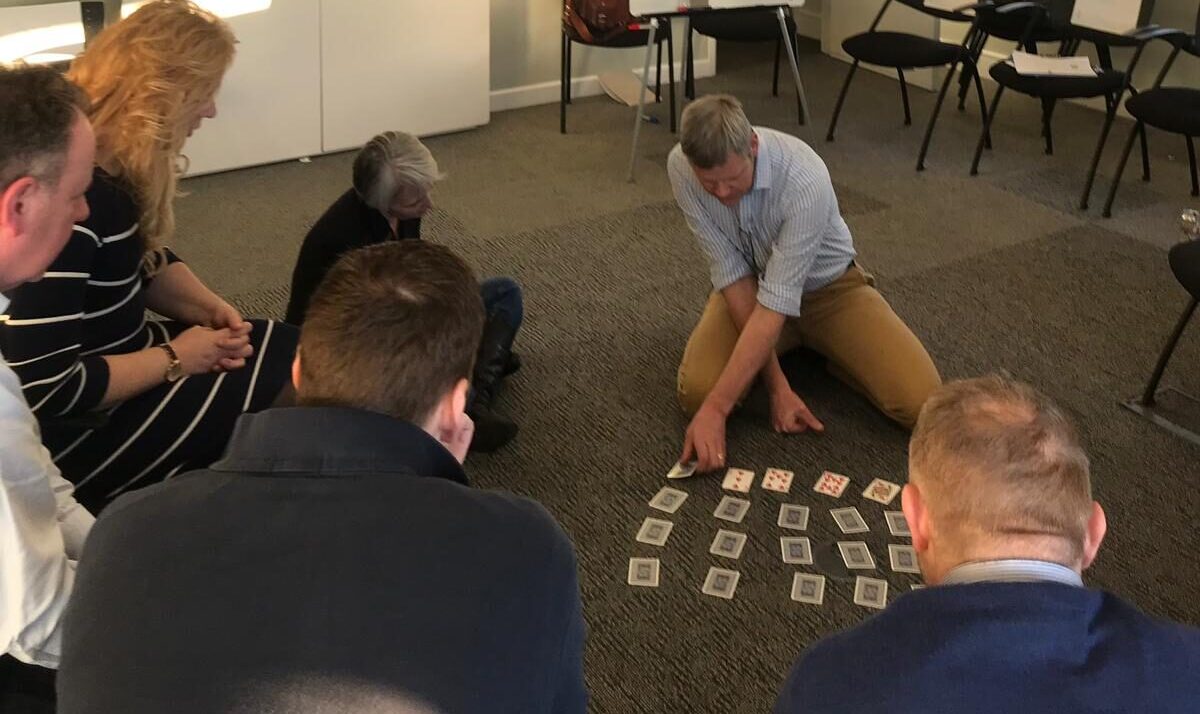Background:
A team of financial crime officers in an international off-shore bank were working dysfunctionally in silos. The bank’s head of financial crime approached us to provide team coaching because she thought her team was Extra-Dependent and knew of our speciality in this area.
Connecting:
I connected initially with the team leader to appreciate the team challenge. It was clear that connecting would be an issue because of the lack of trust between different parts of the team, and this included the leader.
What we did
Team Coaching of an EDT
Where
Banking
When
14 months
How
EDTs, Internal Coaching Team
Background
A team of financial crime officers in an international off-shore bank were working dysfunctionally in silos. The bank’s head of financial crime approached us to provide team coaching because she thought her team was Extra-Dependent and knew of our speciality in this area.
Connecting
I connected initially with the team leader to appreciate the team challenge. It was clear that connecting would be an issue because of the lack of trust between different parts of the team, and this included the leader. After an initial call with the team to contract, I then met each team member individually. We use a confidentiality agreement for 1:1s that mirrors all-team calls – that anything anyone says is open to, but limited to within the team. This proved a very helpful first step as it demonstrated that as the coach, I wouldn’t hold secrets from the team. It was the first important step to break down mistrust.
Consideration
A questionnaire by everyone in the team confirmed the working assumption that the team was Extra-Dependent. Each team member reported to a separate jurisdiction. They didn’t work together. Instead, they were required to work intimately within their respective jurisdiction to add the unique value to the bank and law enforcement agencies together. The issue was they didn’t trust each other enough to share their practice. Competitiveness is a default dynamic in Extra-Dependent Teams. This is because team members compare themselves with each other. This can be antagonised when team meetings revolve around accounting for progress against objectives. Whilst this works with Inter-Dependent Teams, it drives a comparison culture in Extra-Dependent Teams.
What this team lacked was consistency or practice.
Change
Two things really helped to make a change. The all-team calls shifted from accountabilities and coordination of work to sharing practice. We started gently with exploring “loyalties and expectations” between themselves and others they interacted with. Immediately this legitimised their local teaming with jurisdictions, as well as heard each one start to share their own experience. We then moved onto successes and then onto mistakes. Successes made an immediate impression as this helped each team member share with the team some element of their practice. Because it was a success, it would be easier to tell. But I had to work hard to draw out the specific details of what made the success what it was. What makes the success is the practice and when this is shared, everyone benefits. The same goes for mistakes, but because of the credibility risk, needs time (in this case several all-team calls over several months) to get to the stage where they were able to share.
The second thing that made the change was the 1:1 team coaching. This helped prepare people to speak up, to rehearse what they needed to say to the rest of the team, or indeed to talk directly to specific individuals. The 1:1 team coaching of the team leader was no different, but perhaps more frequent. There was a lot of work for her to do within the team and there were many assumptions and decisions she had made that needed careful exploration.
Close
By the time we closed the coaching the team leader affirmed that they were, “sharing experiences with each other that was unheard of compared to the start” and that, “team members developed voices that they didn’t have before.” The team was much more trusting and consistent and was more able and willing to change to meet new needs from the bank and its stakeholders.
